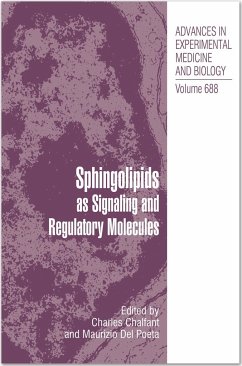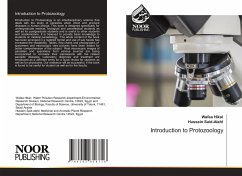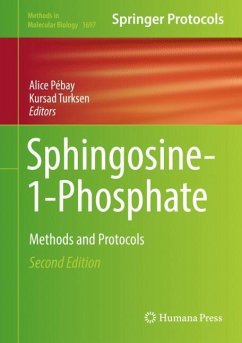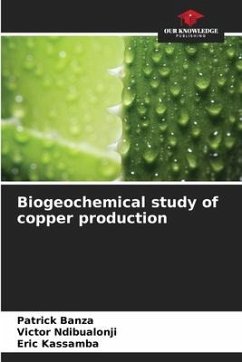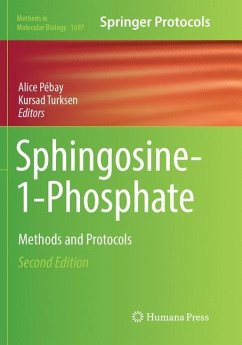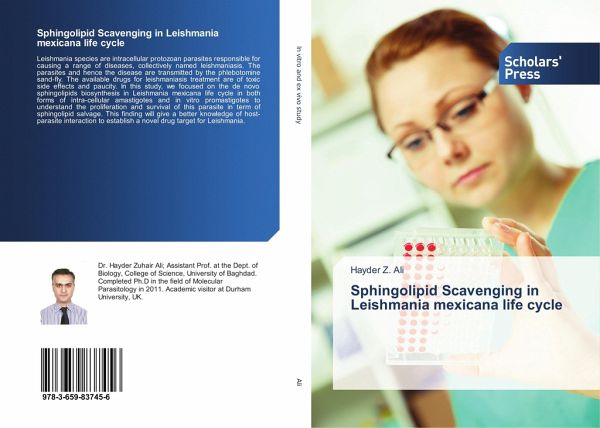
Sphingolipid Scavenging in Leishmania mexicana life cycle
Versandkostenfrei!
Versandfertig in 6-10 Tagen
53,99 €
inkl. MwSt.

PAYBACK Punkte
27 °P sammeln!
Leishmania species are intracellular protozoan parasites responsible for causing a range of diseases, collectively named leishmaniasis. The parasites and hence the disease are transmitted by the phlebotomine sand-fly. The available drugs for leishmaniasis treatment are of toxic side effects and paucity. In this study, we focused on the de novo sphingolipids biosynthesis in Leishmania mexicana life cycle in both forms of intra-cellular amastigotes and in vitro promastigotes to understand the proliferation and survival of this parasite in term of sphingolipid salvage. This finding will give a be...
Leishmania species are intracellular protozoan parasites responsible for causing a range of diseases, collectively named leishmaniasis. The parasites and hence the disease are transmitted by the phlebotomine sand-fly. The available drugs for leishmaniasis treatment are of toxic side effects and paucity. In this study, we focused on the de novo sphingolipids biosynthesis in Leishmania mexicana life cycle in both forms of intra-cellular amastigotes and in vitro promastigotes to understand the proliferation and survival of this parasite in term of sphingolipid salvage. This finding will give a better knowledge of host-parasite interaction to establish a novel drug target for Leishmania.



